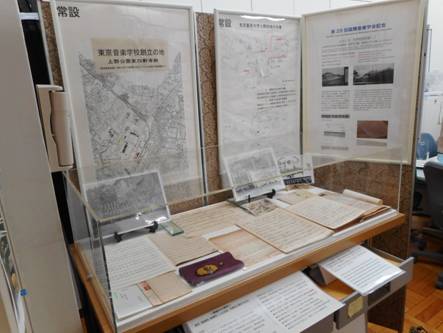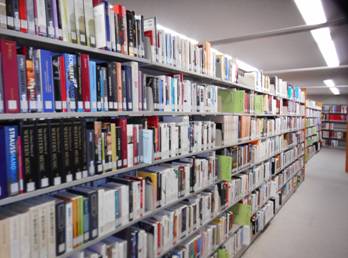RISM at the IMS Congress in Tokyo
Thursday, April 20, 2017

I (Jennifer Ward) attended the International Musicological Society (IMS) congress in Tokyo from March 19 to 23, 2017, supported by a grant from Bibliothek & Information International/Goethe-Institut. The congress was hosted by the Tokyo University of the Arts and revolved around the theme Musicology: Theory and Practice, East and West.
RISM (and the other three R projects) is jointly sponsored by the IMS and IAML (the International Association of Music Libraries, Archives and Documentation Centres). While IAML meets annually, IMS congresses are pretty rare occasions, taking place only once every five years. This was my first IMS congress, and the congress can be described as gigantic in scope: there were over 600 participants; a plethora of keynote lectures, roundtables, study sessions, and papers; and at times 10 or more sessions at once. It was impossible to see everything.
A joint R session allowed each of the R projects to present new developments. The RISM presentation was given by RISM director Klaus Keil and showed some features of the online catalog and Muscat, RISM’s new cataloging program.
The main RISM session was called “Research Tool(s) for Source Studies.” Andrea Lindmayr-Brandl presented the project Music Printing in German-Speaking Lands: From the 1470s to the Mid-16th Century and illustrated how the database uses RISM as a starting point but then goes into detail beyond what the international RISM project records. With Klaus Keil, I co-presented a talk called “The RISM Online Catalog and Beyond: Using, Reusing, and Contributing RISM Data in Musicological Projects.” We described the various kinds of RISM data that researchers can find in the catalog, and then focused on how RISM and musicologists can work together. Muscat especially made an impact on the audience and it sounds like musicologists are open to the idea of working with this program.
Besides the RISM sessions, my second main reason for attending the IMS congress was to participate in the Commission Internationale Mixte meeting of RILM (a closed meeting), a body that governs and advises RILM. I am one of four IAML representatives to the Commission and this was my first meeting as a new member. The Commission only meets once a year.
One highlight of the conference was seeing our RISM Japan colleagues. On one of the congress days we had a meeting with the president of IAML Japan, Tsuneko Arakawa, and our RISM Japan coordinator, Yumiko Hasegawa. Both of our colleagues agreed that the best way for Japanese libraries to contribute to RISM would be by means of transferring data from library catalogs in Japan to RISM’s database. They gave us the names of a handful of libraries with relevant music materials and described the collections for us. We hope to be in contact with these libraries to see whether a partnership would be feasible.
While in Tokyo, I made sure to visit as many libraries or archives as I could. I started with the Tokyo University of the Arts’ Archive Center, which was hosting an exhibit of materials related to Yamada Kosaku (1886 –1965). Documents, photographs, and manuscript scores of the composer and conductor were on display. These are gradually being digitized and made available online.

Manuscript music by Yamada Kosaku on display at the Archive Center
Next I visited the university library of our host institution. The library supports the mission of the university and with around 490,000 volumes it is at the same time one of the foremost arts libraries in Japan. Within the music reference section I easily found an entire run of printed RISM books, including the very newest one from 2016!
Highlights from the library’s special collections (which were not on display but a description can be found on their website) include music books from the Edo period, books containing music for koto (a type of harp), and some rare printed music by European composers. It appears that some of these materials are digitized and available online.
Outside of the scope of the congress, I arranged a tour of the National Diet Library and the Tokyo Metropolitan Library.
The National Diet Library (NDL), as its name implies, serves as a reference library for members of the Diet (parliament), but it is the de facto national library of Japan. The main purpose of the NDL is to assist the Diet in its information needs related to lawmaking but it also considers its tasks to include the development of information resources for Japan as well as to guarantee access to these information resources.
The NDL collects, preserves, restores, and makes available all publications issued in Japan, including material published electronically. Of course this includes manga and the library’s collection of these Japanese comics makes up a very colorful section of the stacks. The library started systematically collecting manga in the late 1960s.

The manga collection at the NDL
My tour guide was Yuko Kumakura. Throughout the excellent tour, she made extra efforts to show us music materials and use music examples when telling us about the NDL’s collections. Ms. Kumakura took us through the public areas and into several reading rooms (including humanities and the listening center), followed by a trip to the stacks. When we visited the reading room for music, she took us to where the library’s copies of the RISM publications were kept!
Ms. Kumakura gave us a demonstration of the online catalog, which is available with an English interface, and showed us how we can target music materials by doing a search by classification number using the code YM*. Our guide also showed us a separate system that is used for in-depth searching of the contents of music scores; this search was a bit more complicated if you don’t know Japanese. Because we’re librarians, we also learned about the NDL’s authority files, classification scheme, and the structure of the OPAC records.
The library has some special collections related to music. A collection of 600 music manuscripts owned by composer Hikaru Hayashi (1931–2012) has recently been made available to researchers by the NDL. (See this link for some pictures from the public presentation of this collection in 2016.) Some manuscripts have been digitized but they can only be viewed on site due to copyright restrictions. Another collection is the Historical Recordings Collection, which is the result of a partnership between the NDL and several other institutions (including the Japanisches Kulturinstitut in Cologne) to preserve over 50,000 early Japanese sound recordings. The NDL hosts this service while the recordings themselves are still owned by the respective institutions.
The final library I visited on this trip was the Tokyo Metropolitan Central Library. There were no formal tours available, but I was allowed to look around on my own after receiving a reader’s card from the reception counter. This is a non-circulating public library that is one of the largest in Japan. The library acts as a research library for Tokyo residents and offers about 1,000 seats for people to study. The library’s collection contains two million items with a special emphasis on information about cities around the world, census reports, and cultural assets. A few shelves containing books about music and music history are in the Humanities Room. A Special Collections department preserves over 243,000 items related to the early history of Tokyo. The Tokyo Metropolitan Central Library has a significant collection of materials in foreign languages (10% of the collection).

The music section of the Tokyo Metropolitan Central Library
The congress was the first IMS congress to take place in Asia. It was an excellent opportunity to see our Japanese colleagues, whom we only rarely see face to face, and to connect with musicologists from around the world. I would like to thank BI-International for the funding to support my participation in this congress. I would also like to thank the organizers of the IMS congress for their hospitality. I hope to see everyone again at the 2022 meeting in Athens!
Share Tweet EmailCategory: Events

